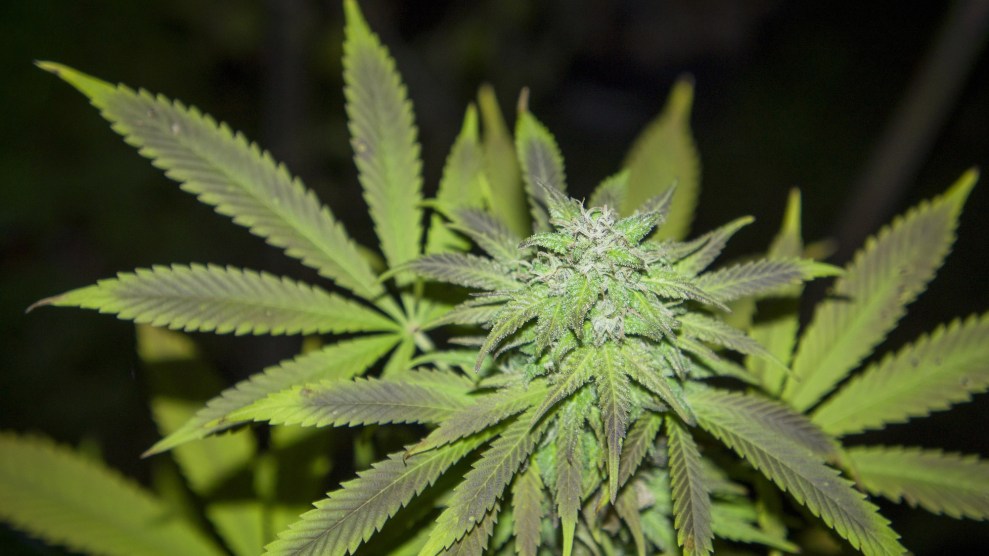
Last Tuesday, seven more states legalized medical or recreational marijuana use.<a href="http://www.istockphoto.com/photo/medical-marijuana-gm157559940-11929780?st=_p_medical%20marijuana">nicholas belton</a>/iStock
Although President-elect Donald Trump took the spotlight last Tuesday night, the election was also a big win for another contested ballot item: marijuana.
Voters legalized recreational marijuana in California, Nevada, Maine, and Massachusetts, and medical marijuana in in Arkansas, Florida, and North Dakota. The news “suggests we’re closer and closer to a tipping point,” says Ethan Nadelmann, executive director of the Drug Policy Alliance. “It was this bizarre evening of having these victories come in and meanwhile seeing what was happening in the broader presidential election.”
Nadelmann is excited, not only about the usual touted pros of legalizing marijuana, but also because of a lesser-known benefit: Several studies have found that rates of opioid overdose drop when pot becomes legal. In a study last year, RAND researchers found that states with legal marijuana dispensaries see lower rates of opioid overdose and abuse. A study this summer in Health Affairs found that doctors are less likely to prescribe prescription painkillers in states that have legalized marijuana. In a 2014 JAMA Internal Medicine study, researchers found that opioid overdose deaths fell by an average of 25 percent following the passage of marijuana legalization laws.
“The striking implication is that medical marijuana laws, when implemented, may represent a promising approach for stemming runaway rates of non-intentional opioid analgesic-related deaths,” wrote neuroscientist Marie Hayes in an editorial accompanying the study. “If true, this finding upsets the applecart of conventional wisdom regarding the public health implications of marijuana legalization and medicinal usefulness.”
The researchers have yet to pinpoint what is causing the reduction in overdoses. Some suspect that marijuana is acting as a replacement for opioid painkillers; others reason that it is because marijuana is an “enhancer”—it magnifies the effects of opioids, thus leading patients to take lower painkiller doses but feel the same level of pain relief.
“I’ve always avoided making these arguments [about the health benefits of marijuana] when I debate marijuana policy in public because it makes me sound like the people who go, ‘Hemp will save the universe!'” says Nadelmann, of the Drug Policy Alliance. “But the fact of the matter is that it’s harder and harder to ignore the growing body of evidence.”

















